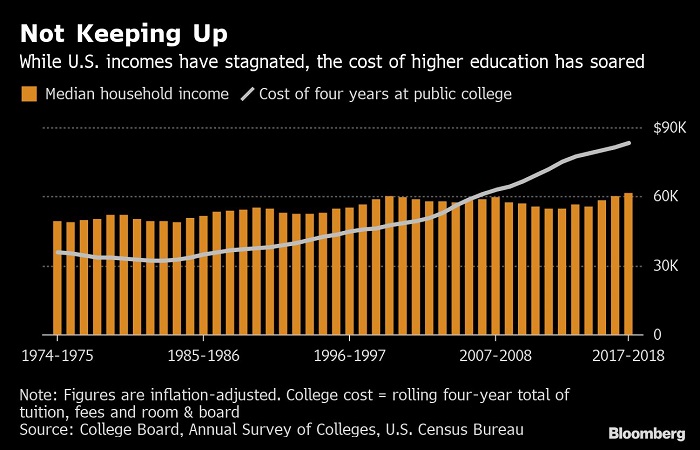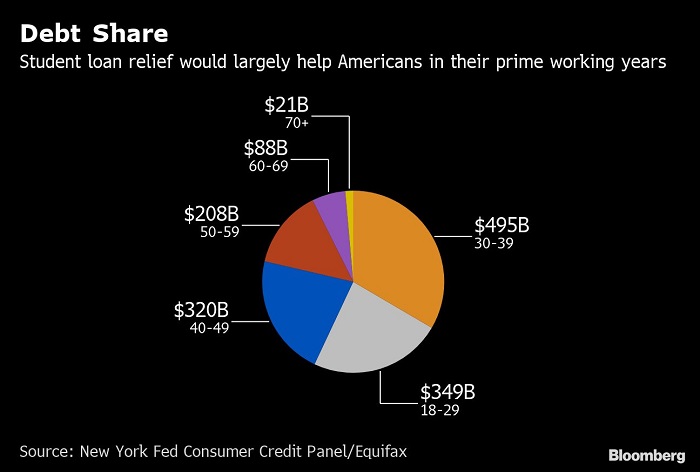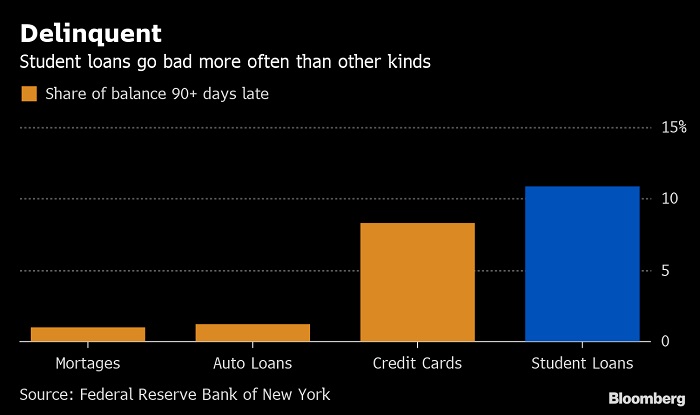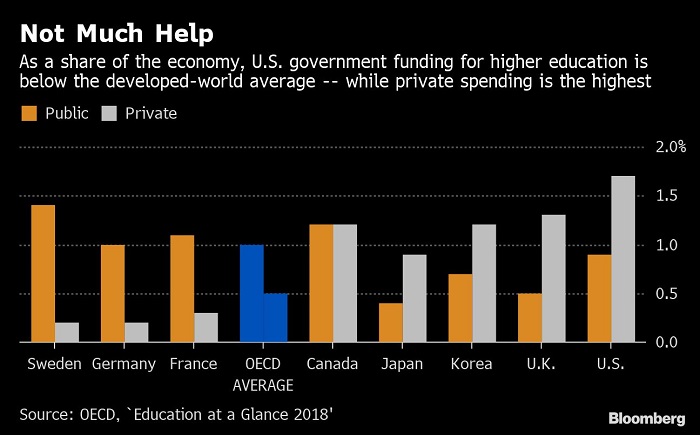 Federal Reserve economists found that student loan debt is holding back home-buying among millennials, while the Roosevelt Institute says a disproportionate burden falls on black Americans. (Photo: Shutterstock)
Federal Reserve economists found that student loan debt is holding back home-buying among millennials, while the Roosevelt Institute says a disproportionate burden falls on black Americans. (Photo: Shutterstock)
(Bloomberg) –Bernie Sanders caused a stir this week with his plan to tax Wall Street trades and use the cash to forgive student loans. One of his advisers makes the case for writing off those debts — even if investors don't pay for it.
Stephanie Kelton, who's advising the senator and Democratic contender in his presidential campaign, co-authored a paper that says the whole economy will benefit if America's $1.6 trillion in student debt is canceled.
It's a hot topic in the Democratic primaries, and Sanders is likely to get pushback in Thursday's second debate. Senator Elizabeth Warren, who appeared in the first one on Wednesday, has also backed writeoffs. But most candidates — like Senator Amy Klobuchar, who raised the issue last night — support measures to make college more affordable that stop short of debt forgiveness.
Kelton's 2018 paper, co-written with Scott Fullwiler, Catherine Ruetschlin and Marshall Steinbaum, argues that there'll be more consumption, home-buying and creation of new businesses once the shackles of loan repayments are removed. It says many students borrowed on an implied promise: that debt-financed degrees would more than pay for themselves, in the form of higher incomes. But the economy hasn't really delivered.
 While college costs rise, people's income has not kept up. Chart: Bloomberg
While college costs rise, people's income has not kept up. Chart: BloombergKelton defended the write-off plan from critics who say it's skewed toward wealthier Americans.
“People say 'Who benefits?',” she said by phone. “It's not just the 45 million people who have the debt — and, by the way, their parents and grandparents who co-signed for them. It's a much broader population.''
 Student loan relief would largely help Americans during their prime working years. Chart: Bloomberg
Student loan relief would largely help Americans during their prime working years. Chart: BloombergAmericans owe more than five times as much student debt as they did in 2004. A growing pile of research has looked at the economic consequences.
Federal Reserve economists found that it's holding back home-buying among millennials, while the Roosevelt Institute says a disproportionate burden falls on black Americans. The New York Fed said last month that 11% of loans are seriously delinquent or in default. (It added the rate is effectively twice as high, because half the loans don't currently have repayments due).
 Student loans are the most likely to become delinquent. Chart: Bloomberg
Student loans are the most likely to become delinquent. Chart: BloombergSanders on Monday offered the most far-reaching fix yet. As well as writing off existing debt, it involves spending $48 billion a year to eliminate tuition fees at public colleges. He proposed a tax on stock, bond, and derivatives transactions to pay for it.
Kelton and her co-authors found that eliminating tuition debt would add as much as $1.1 trillion to gross domestic product over a decade, and create as many as 1.5 million jobs annually — along with other economic and social gains that are harder to measure.
Instead of financing the plan with higher taxes, as proposed by Sanders, the study envisages deficit-spending. The authors calculate that the plan would add about 0.7 percentage points of GDP a year to the shortfall — though the net impact right now would only be roughly half that, because some costs have already been provisioned for. State and local public finances would benefit, while inflation would edge some 30 basis points higher before subsiding.
Critics point out that the U.S. budget is already diving into the red. And, even if the case for aggregate gains is strong, a charge often leveled against debt writeoffs –- like during the debate about how to help underwater homeowners after the financial crisis –- concerns fairness.
Many analysts say such steps effectively penalize people who are more prudent with their money. A study by the Urban Institute found that education debt is concentrated among the well-off, so forgiving it would be regressive.
The authors of the 2018 paper say it's the poorer borrowers who would see the biggest reduction in their debt-servicing burden.
More broadly, they argue that it's better to think of higher education as a public good, contributing to a more dynamic economy — not a private benefit that only accrues to the individual getting a degree.
That's the approach taken in many developed countries too. They typically pay for a chunk of higher education out of the public purse. By comparison, the U.S. places more of the burden on households.
 Other countries provide more funding to educate students at college and professional levels. Chart: Bloomberg
Other countries provide more funding to educate students at college and professional levels. Chart: BloombergKelton, like Sanders, is a vocal supporter of measures to make the U.S. economy less unequal. But she says objecting to student debt relief on those grounds is a “poor argument.''
“You just have to make the best policy you can here and now,'' she said. “You can't wind the clock back and make it right for everyone.”
© 2025 ALM Global, LLC, All Rights Reserved. Request academic re-use from www.copyright.com. All other uses, submit a request to [email protected]. For more information visit Asset & Logo Licensing.







